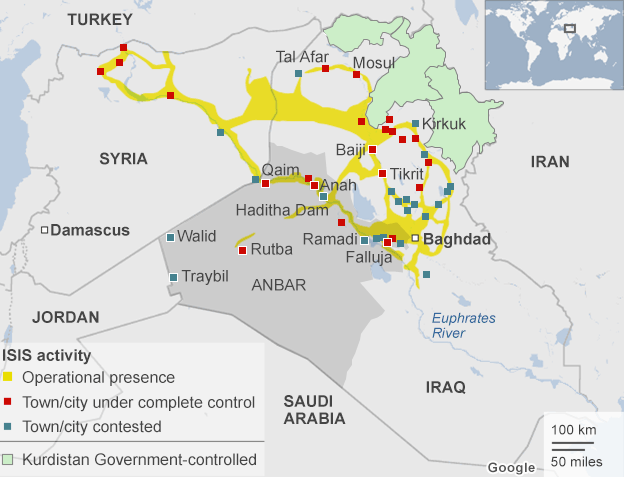Strategy Page explains why NATO aid for the Kurds in northern Iraq may not be sufficient or even timely:
The recent ISIL (al Qaeda in Iraq and Syria) misbehavior (mass murder and so on) in Syria and Iraq has caused a public uproar in Europe and generated demands that NATO send forces to try and stop all the killing. The German government responded on August 20th with a pledge to send weapons to the Kurds who are fighting ISIL in northern Iraq. But Germany was reluctant to send warplanes or troops. A few days later a German Defense Ministry readiness report was leaked and it made it clear why even getting weapons to the Kurds would be difficult. The report showed that only 8 percent of 109 Eurofighter (similar to the U.S. F-15), 11 percent of 67 CH-53 transport helicopters, and 10 percent of 33 NH90 helicopters were fully operational (not sidelined for upgrades, repairs or other problems.) However 38 percent of 56 C-160 twin turboprop transports were available. This made it possible to fly some weapons into northern Iraq, but not much else. Normally a combat ready military has at least half, and more normally over 70 percent of its warplanes ready to go. While this situation shocked many, those who have followed European military trends since the 1980s were not surprised.
The problem is that the European NATO members never spent as heavily on their armed forces as did the United States and Russia, especially after 1991. Britain and France are still heavy spenders, but not enough to make up for what the rest of European NATO members are not doing. European NATO members are aware of this problem, but it has never been a high enough national priority to actually fix.
There was some hope in the decade after September 11, 2001 as the need to deal with international Islamic terrorism changed the armed forces of Europe in unexpected ways. More money was spent on the military and many of the troops got some combat experience. Now the Europeans have more capable and professional forces than they have had for many decades. None of this was expected. But in the last few years these changes have begun to fade. Thus the shocking readiness numbers for German aircraft.
[…]
For example, in 2008 the German parliament was in an uproar over a report depicting German soldiers as physically unfit for military service. It was found that 40 percent of the troops were overweight, compared to 35 percent of their civilian counterparts (of the same gender and age). The investigation also found that the troops exercised less (including participation in sports), and smoked more (70 percent of them) than their civilian counterparts. The military now encourages sports and physical fitness, and discourages smoking, but those efforts did not appear to be working.
When other Europeans looked around they found that it was not just a German problem. It was worse than that. Most European military organizations were basically make-work programs. It’s long been known that many European soldiers are not really fit for action. They are mainly uniformed civil servants. One reason many are not ready for combat, or even peacekeeping, operations, is that they don’t have the equipment or the training. And that’s because up-to-date gear, and training, are expensive. A disproportionate amount of money is spent on payroll. That keeps the unemployment rate down more effectively than buying needed equipment, or paying for the fuel and spare parts needed to support training.
Update: Some supplies and weapons are getting to the Kurdish forces. Here’s the Operation IMPACT page at the Canadian government website:
Operation IMPACT is the Canadian Armed Forces (CAF) provision of strategic airlift to assist in the delivery of critical military supplies to security forces in Iraq fighting the Islamic State of Iraq and the Levant (ISIL).
Hundreds of thousands of Iraqis have been threatened and displaced by the militants of ISIL that began seizing territory in northern Iraq earlier this year. This support will enable security forces in Iraq to provide effective protection to Iraqis faced with ISIL aggression.
Canadian Air Task Force Iraq
One Royal Canadian Air Force (RCAF) CC-130J Hercules transport aircraft and one CC-177 Globemaster III strategic airlifter have been committed to transport military supplies donated by allies. Approximately 100 Canadian Armed Forces personnel are deployed, including air crew, ground crew and logistical support personnel.
The aircraft, along with those of contributing allies, will work from staging locations in the Mediterranean and in Eastern Europe.
The CC-130 aircraft is used for a wide range of missions, including troop transport, tactical airlift and aircrew training. The CC-177 Globemaster III specializes in rapid delivery of troops and cargo for operations taking place in Canada or abroad.
Both aircraft and their personnel will remain deployed as long as the Government of Canada deems necessary.




